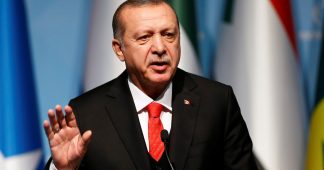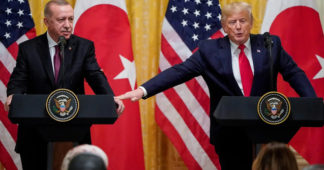By Dimitris Konstandakopoulos
“On one hand, we are happy because the war against the Palestinians has stopped. On the other hand, however, the agreement is not logical, since 58% of the Gaza Strip remains under Israeli occupation.” The agreement is a product of pressure on the Palestinians by Arab states, led by Qatar, and Turkey. In exchange for pressuring the Palestinians, Erdogan secured Trump’s “green light” for control over Syria.
This is how Dr. Hoda Rizk answers our question on how the Cairo agreement is viewed in Lebanon.
A political sociologist at the Lebanese University, Dr. Rizk is the author of three books on Turkey and the Arab world and has a weekly column on Mayadeen Net. Her research interests include Turkey and the Middle East.
“We do not trust Israel,” Dr. Rizk tells us.She fears that the Israelis, already controlling 58% of the Gaza Strip, can easily create a pretext to displace the inhabitants from there. “When Netanyahu gets the hostages, he may not implement any agreement, and no one will help the Palestinians,” she tells us. After all, Netanyahu, like Trump, change their views very easily.
Dr. Rizk believes that Erdogan agreed with Trump on the Palestinian issue and on control over Syria and the South Caucasus during his recent visit to the US. We recall that Trump had a two-hour private discussion with Erdogan in September, which the US President described as “great” (Trump urges Erdogan to stop buying Russian oil as they meet at White House – live updates). Erdogan’s visit to the White House was the first in six years.
As the Lebanese specialist explains to us, Tayip Erdogan believes his country has the right to take Syria, to govern it, because of the help he provided to the uprising against Assad, but also because he considers the curbing of the Kurdish autonomy as a matter of Turkish national security. There is a rivalry between the Turkish plan for control of a unified Syria from Ankara and the Israeli one for a weak and fragmented country.
(Of course, after Israel gets what it wants from Turkey regarding the Palestinian issue, it would probably have no problem overturning any Turkish-American agreement on Syria as well).
With the Lebanese scientist, we also discussed her fears, which are shared by many other observers, about the possibility of new wars against her country and Iran, but also about the overall developments in Western Asia and within Turkey itself. The full interview will be published in the coming days.











